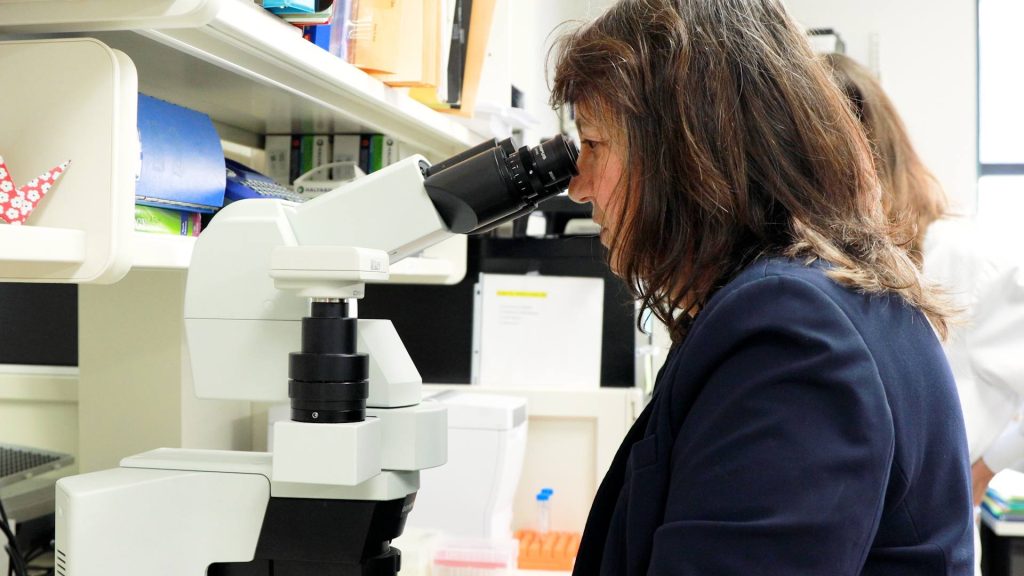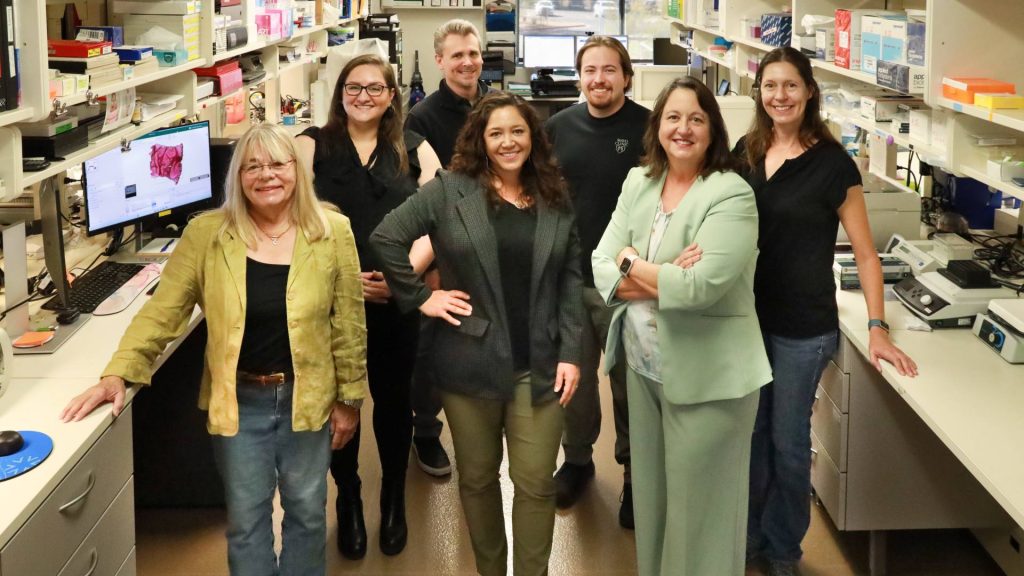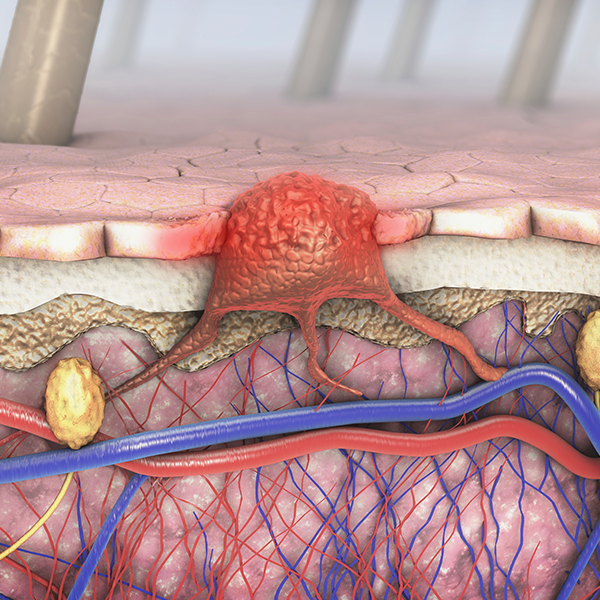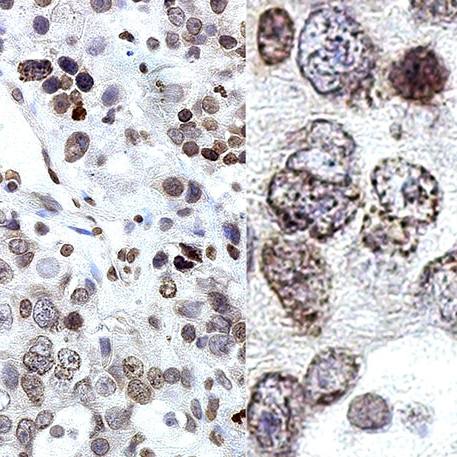-
Mayo Clinic Minute: How precise diagnosis of lymphoma offers patients best treatment options
Dr. Lisa Rimsza is a pathologist, director of the Molecular Diagnostics Arizona Laboratory and researcher with the Mayo Clinic Comprehensive Cancer Center. Her research specializes in lymphoma, with a focus on developing tests for accurate patient diagnoses and assessing disease aggressiveness.
Dr. Rimsza has made significant advances in this field of research. She says having a precise diagnosis allows physicians to provide patients with the best possible treatment.
Journalists: Broadcast-quality video pkg (1:05) is in the downloads at the end of this post. Please courtesy: “Mayo Clinic News Network.” Read the script.
"My lab focuses on lymphoma, which is a group of diseases and cancers that arise from the lymphatic systems," says Dr. Rimsza.
"We specialize in developing new tests to make sure we can get the most accurate diagnosis for the patient, and also figure out whether their disease is likely to be more or less aggressive," she says.

"We've been working with an interesting platform, or technology platform, which actually is able to use the tissue that is most commonly available from patient biopsies when a biopsy is taken out. It's put in formaldehyde and then in paraffin wax," she says. "We've been using a technology that actually is able to work with that tissue and get good information about genes and expression."

"It's absolutely important that the patient has the most accurate diagnosis as possible. And what we're doing is going through the most common types of lymphomas, and trying to build a series of assays that will answer several different diagnostic questions," says Dr. Rimsza.
Learn more about Dr. Rimsza's work:
- Dr. Lisa Rimsza - 2023 Arizona Bioscience Research of the Year
- RNA test identifies large B-cell lymphoma subtypes
Related posts:
- Mayo Clinic Minute: Understanding, treating lymphoma
- Consumer Health: Treating leukemia and lymphoma







